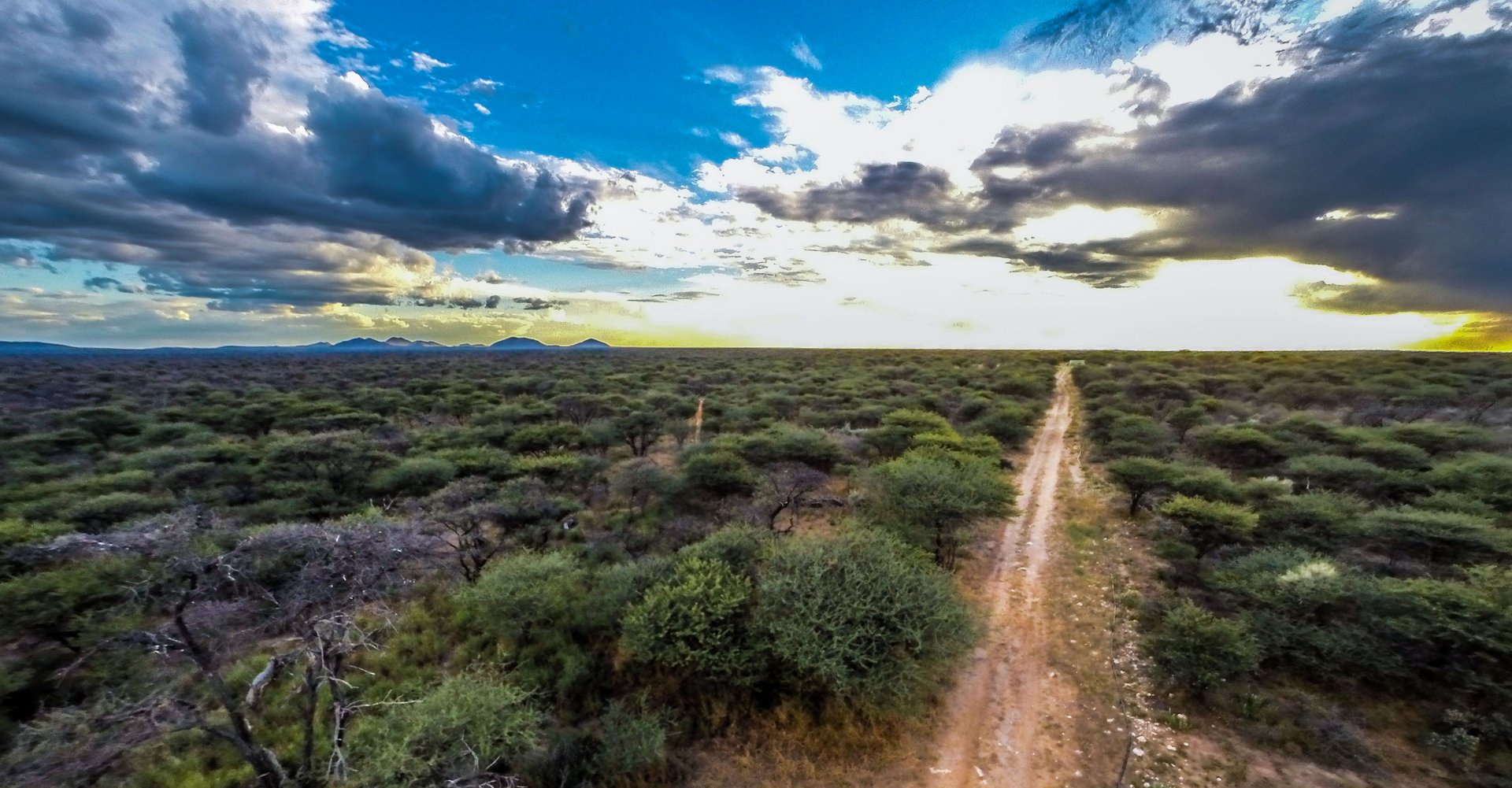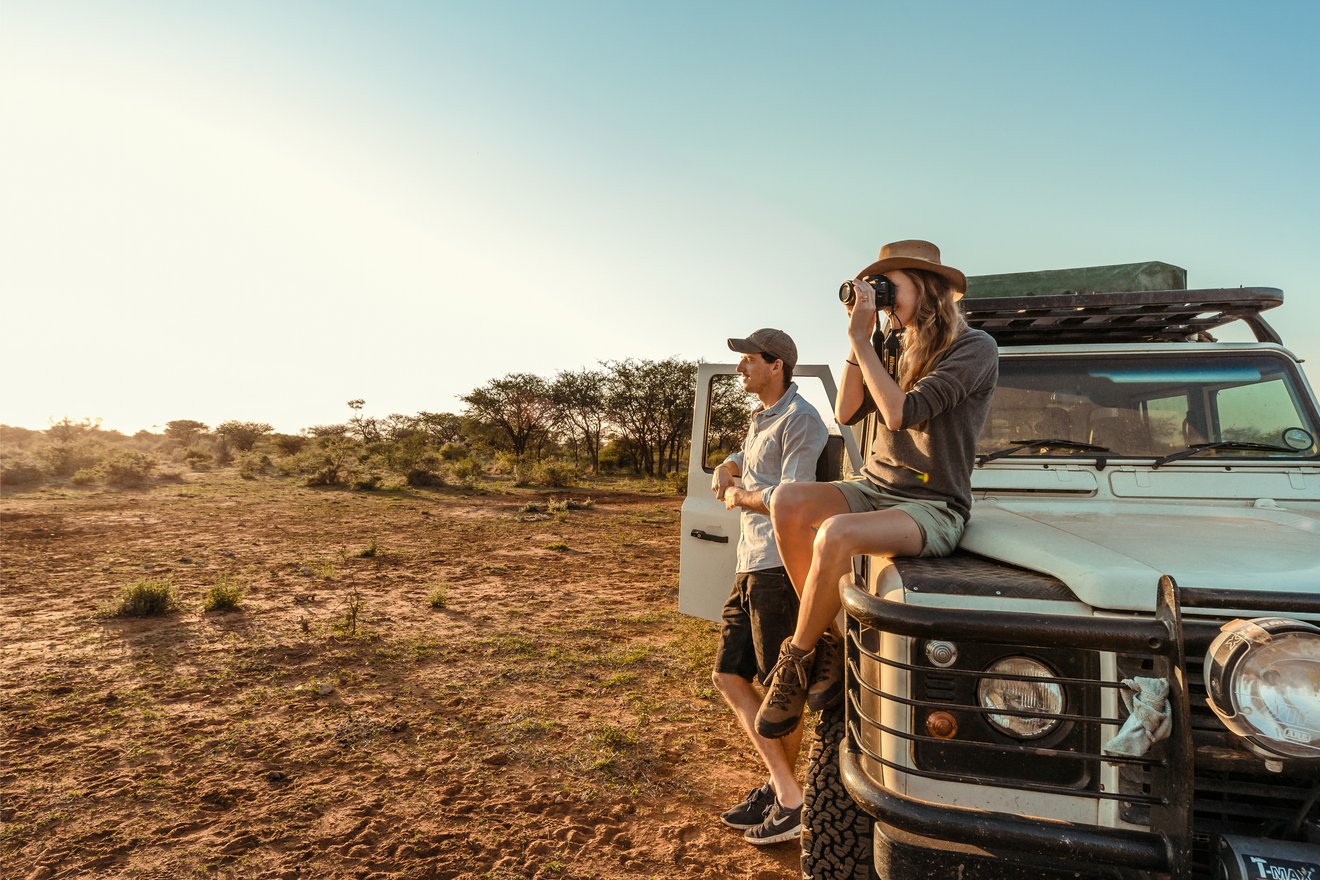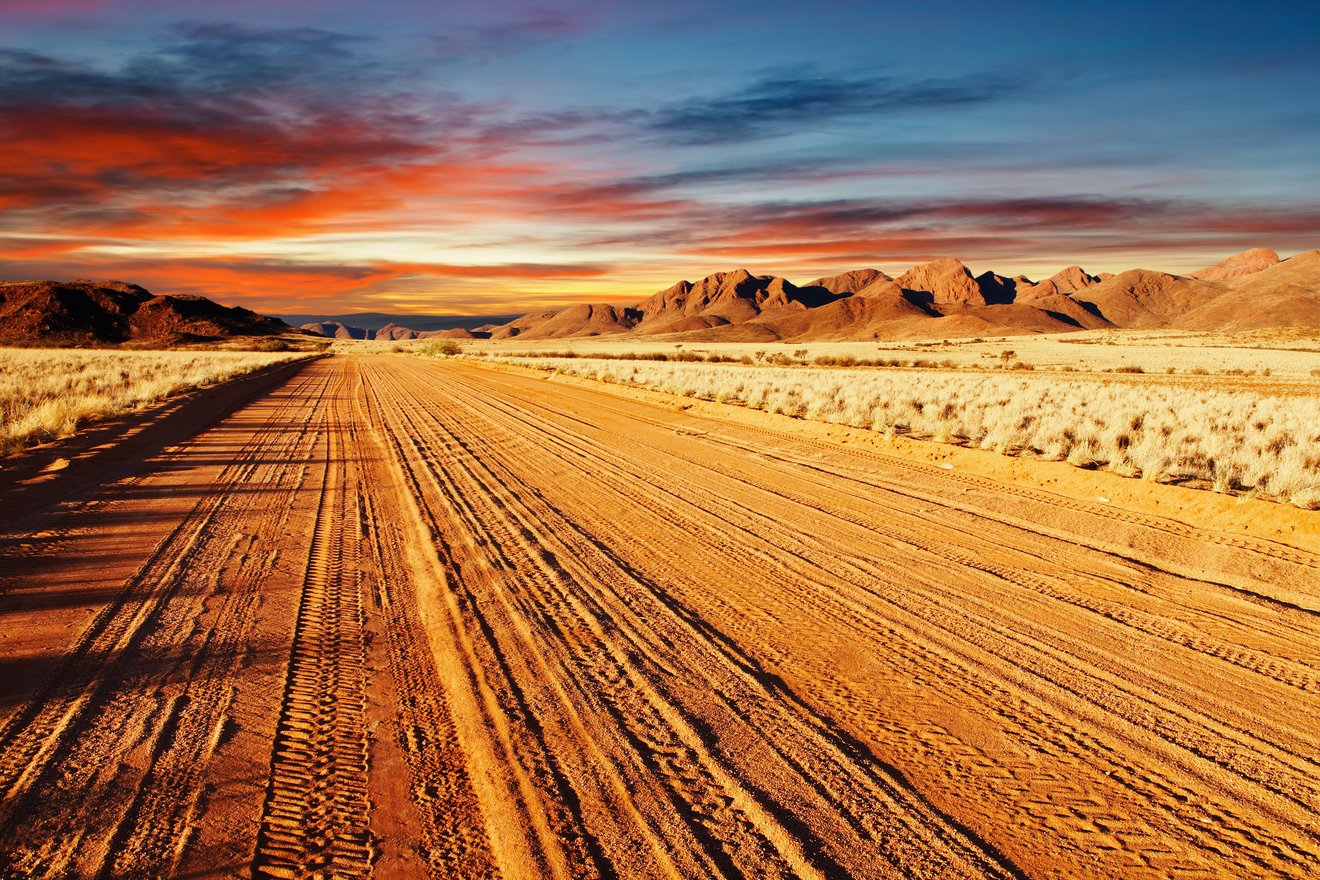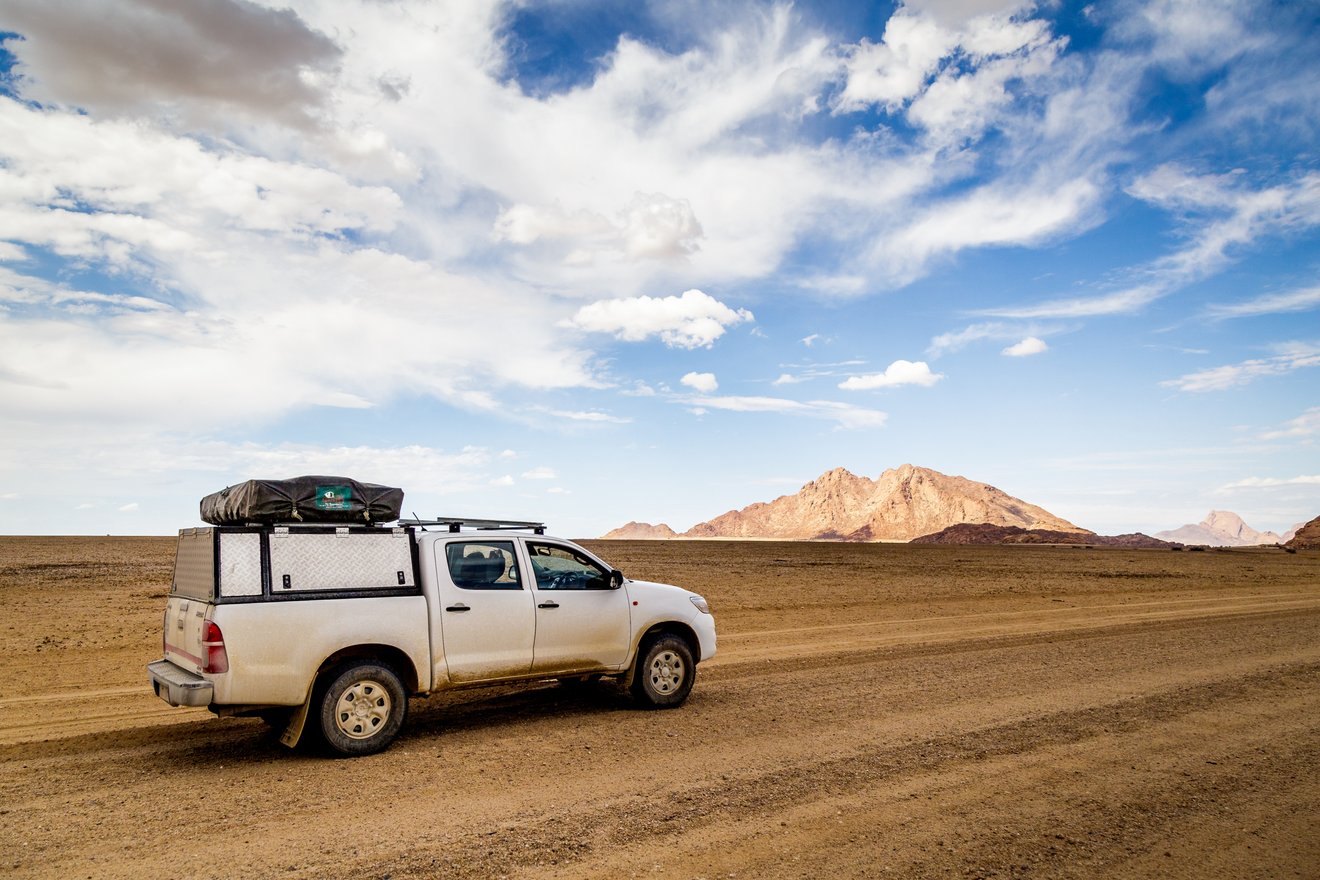Namibia, with its breathtaking landscapes, rich cultural heritage, and diverse wildlife, is a popular travel destination. However, when planning a trip to Africa, the question often arises: Is Namibia safe? Our answer is: Yes, Namibia is a safe travel destination. In this article, we explain why. With a wealth of information from different perspectives on travel safety, tips, and advice, we aim to help you plan your Namibia trip with peace of mind.
In addition to various safety aspects and general behavioural measures, we've summarised some Namibian crime statistics for you. Traffic safety also has its own section, as believe it or not, drivers in Namibia face probably the highest safety risks.
Since no one travels to Namibia just for the stunning landscapes but also to experience the diverse wildlife of the African savannas, you'll find important recommendations for behaviour in nature at the end of this page.
If you don’t plan to explore Namibia on your own and are instead looking at a holiday at KAMBAKU, you needn’t worry about your safety. Our transfer service will safely bring you from the airport to our private wildlife reserve. Once at KAMBAKU, ensuring you have sufficient sun protection should be your only concern.
Dates & Facts
IS NAMIBIA A SAFE COUNTRY FOR TOURISTS?
- Politics
The political situation in this democratic country is stable. Unlike many other African states, corruption and nepotism do not play significant roles.
- Crime
Crime statistics are unremarkable by global standards and mainly affect the local population rather than tourists. As in all major cities, occasional pickpocketing and scams occur in Namibia. Fortunately, robberies, organised crime, and capital offences are rare. There is no religiously motivated violence or ethnic strife to speak of.
- Drinking Water
The quality of drinking water in Namibia meets international standards and is good in most parts of the country. A 2022 study by Namibia's Ministry of Health found no contamination in most urban areas and tourist centres.
- Malaria & Travel Vaccinations
There are no mandatory vaccinations for Namibia, though some regions have recommendations. In the subtropical areas of the far northeast, caution against malaria is advised. KAMBAKU is malaria-free! In the border region with Angola, a yellow fever vaccine was once recommended, and hepatitis vaccination is recommended for other parts. Currently, no special vaccinations are required for travellers. Nonetheless, please consult your GP before your trip.
Because our guests spend a lot of time outdoors and the Kambaku Wildlife Reserve is part of the thornbush savanna, where scratches can occur during hikes, safari rides, and mountain biking tours, we recommend checking your tetanus protection.
- Medical Care
Namibia has about 1,150 healthcare facilities, including 30 district hospitals, 44 health centres, and 265 clinics. Prominent public hospitals include Windhoek Central Hospital and Katutura State Hospital in Windhoek, offering a wide range of medical services such as general medicine, surgery, orthopaedics, cardiology, and neurology.
The quality of healthcare varies significantly between public and private hospitals. Public hospitals are essential for basic care and emergency medicine but often face challenges like longer wait times and limited resources. Nevertheless, they are well-equipped to handle complex medical cases and are generally the first choice for acute health issues.
Private hospitals such as Welwitschia Hospital in Walvis Bay and Lady Pohamba Private Hospital in Windhoek are known for their state-of-the-art facilities and higher standards of patient care. These hospitals offer advanced medical technologies and specialised services that are often more quickly accessible than in the public sector.
Regarding emergency care, the vastness of the country, long distances, and travel times can be problematic. Often, it depends on the first aid provided by people on site. If you witness an accident, please remember that Namibia has a relatively high HIV rate (about 9.5% of residents aged 15-49 are positive). Always wear rubber gloves when assisting injured persons.
If you need to see a doctor during your trip, please bring cash for the treatment and get a receipt for the services. We recommend all guests take out comprehensive travel health insurance.
- UV Exposure
Namibia's location and climate naturally bring high UV radiation, which can be effectively blocked by using sunscreen with a high SPF and wearing a sunhat.
Stay Safe
TRAVEL SAFETY – TIPS FOR A SAFE TRIP THROUGH NAMIBIA
- Book Local Guides for City Tours and Township Visits
Local guides are knowledgeable, know the area and people, and can assess situations better than you. Their services are very affordable. While enjoying a more immersive experience alongside a local, you're also supporting your guide and their family.
- Avoid Solo Trips in Remote Areas and Driving in the Dark
This is especially important, as highlighted in our tips for self-drivers in Namibia.
- Avoid Tap Water, when possible
Even though there are no serious infections, our clear recommendation is to avoid drinking tap water and opt for bottled water. On KAMBAKU, however, you can brush your teeth with tap water without worry. Our reserve has natural springs with clear, fresh drinking water.
- Sun Protection
The UV exposure is high even if a gentle breeze makes high temperatures more bearable. Always wear a hat and use sunscreen with a high SPF.
- Stay Hydrated
The air humidity in Namibia is generally low, especially during the dry season. Ensure you drink enough fluids, preferably water, to avoid a circulatory collapse.
- Handling Money, Valuables, and Important Documents
Keep cash and credit cards separate. Take only the necessary cash and copies of your identification documents. Keep all non-essential valuables and original documents, like passports or e-tickets, securely stored in your accommodation. If your passport, credit card, or other valuables are stolen, inform the police.
- Keep Your Belongings Close
Always keep your wallet, smartphone, and camera close to your body and never leave your valuables unattended in the car. Avoid wearing flashy jewellery or expensive watches, and refrain from night-time city strolls. In bars and restaurants, do not leave bags and backpacks unattended or hang them on the back of chairs or coat racks.
- Local SIM Cards and Emergency Contacts
Not all mobile providers have network rights in Namibia. It is safest to get a Namibian SIM card at the airport. Keep a list of emergency contacts with you, so you and others can act quickly in an emergency. Note down the number of a relative or friend back home, as well as the contact numbers of your accommodations, insurance companies (including policy numbers), car rental company, and the Foreign Office.
- ATM Safety
It is easy, practical, and inexpensive to withdraw money from ATMs in Namibia. The simplest way is to withdraw money with a credit card in the arrival hall of Hosea Kutako International Airport in Windhoek. As at home, keep a distance from strangers in the queue and do not accept help from strangers. Ensure no one is watching you enter your PIN, and take all receipts the machine issues.
- Wildlife and Nature Park Rules
Always adhere to the rules in wildlife and nature parks. Do not get out of the car and keep windows closed if there are predators in the reserve. Do not drive too close to animals. Stay on designated paths and trails. More behaviour guidelines for wildlife encounters are provided below.
- Forest Fire Danger
Namibia is a desert country, and the risk of forest fires is extremely high! Smokers should be very careful with their cigarettes and never ash on the ground.
LOW CRIME RATE IN NAMIBIA
Compared to other African countries, the crime rate in Namibia is very low. In larger cities like Windhoek or Swakopmund, there are reports of pickpocketing, scams, and car break-ins. As in large German cities (e.g., Berlin or Frankfurt), caution is advised here, although the risk to tourists is comparatively low. By following general safety precautions, such as avoiding solo trips in remote areas, not flaunting valuables like smartphones, cameras, and flashy jewellery, being cautious of strangers, and refraining from night-time city strolls and driving in the dark, the potential danger can be well avoided.
Corruption and Comparison with Neighbouring Countries
Another aspect that can affect tourist safety is the corruption situation in the country. Compared to some of its tourist neighbours in southern and eastern Africa, such as South Africa or Zimbabwe, Namibia is significantly less
Our Recommendations for Self-Drivers
- We strongly advise against driving at night due to the lack of street lighting and high wildlife crossings!
- Wildlife crossings are generally an often underestimated danger—not only during night-time overland drives but also during the day. Moderate speed and caution are required, especially when visibility is impaired by dust and bushy road edges. Car accidents with wildlife such as kudu, oryx, or cattle are comparable to collisions with a mid-sized car.
- Calm and cautious driving is also advised regarding the sometimes rapid overtaking manoeuvres of the locals.
- Please inform yourself about fuel availability along your route before any long drive. Since you cannot rely on the fuel pumps in small villages always having fuel, you should carry at least one, preferably two, full reserve fuel cans.
- Please drive particularly carefully during the rainy season. Special caution is required when crossing rivers (periodically flowing riverbeds), as these can unexpectedly fill with water or have deep sand beds where you can easily get stuck. From February to April, less frequented roads can also be affected by floods.
- Regarding parking: there are plenty of parking spaces in Namibia. If possible, avoid isolated, unguarded rest stops in settlements. In cities, public parking spaces are guarded by "parking boys," who keep an eye on your car for 2-5 NAD in front of supermarkets. Payment is made upon departure, even if you have not explicitly requested vehicle protection! Otherwise, it is advisable to lock your doors while driving through cities to prevent unwanted guests from quickly entering and exiting with your backpack or handbag.
- Namibia's roads take some getting used to. Besides sharp stones on gravel roads, heat and material fatigue quickly lead to tire punctures. Practise changing a tire and handling the necessary tools before your trip. And check the condition of the spare tire before departure!
- An important tip: always carry enough drinking water and a warm blanket for unexpected breakdowns. Not everywhere has mobile phone reception, and you never know when the next car will pass your accident site on the long stretches.
- Never leave the vehicle outside the designated areas.
- Always drive slowly and stay on the paths! Do not leave any litter behind.
- Do not feed wild animals.
- This can change their natural behaviour and become dangerous.
- Always keep a safe distance from the animals. Use binoculars or cameras with zoom lenses to observe.
- Avoid loud noises to not disturb or scare the animals.
- Remain calm and avoid sudden movements near wildlife.
- Do not provoke or harass the animals, especially when approaching young animals.
- Inform yourself about the specific rules of the parks you visit. Note the emergency numbers in case of an incident.
- Use guided tours with experienced guides who know the behaviour of the animals and the park rules.
Special Behaviour Rules for Elephants
Elephants are among the wild animals whose proximity can be most dangerous for visitors. Elephants are much faster and more unpredictable than you think! If you cannot read the signs of the animals, you may recognise their threat gestures too late. Therefore, keep a particularly large distance from the grey giants. If an elephant approaches your vehicle, slowly reverse and give the animal space.
Be particularly cautious with elephant herds with young ones, as the mothers can react very protectively.
Special Behaviour Rules for Lions
When near lions, the most important rule is: Do not get out! Never get out of the vehicle when you see lions, even on paved roads. Close the windows of your car and keep the engine running when you stop near lions, so you can quickly drive away in an emergency. Be particularly vigilant at dusk and at night when lions are most active.
Special Behaviour Rules for Young Animals
Keep a very large distance from animals with young ones, as they can become particularly aggressive to protect their offspring. Never try to get between a young animal and its mother! If you encounter a group with young animals, slowly and quietly continue driving without pressuring the animals.
By following these rules, you contribute to safety and the protection of wildlife, allowing for a respectful coexistence between humans and nature.






